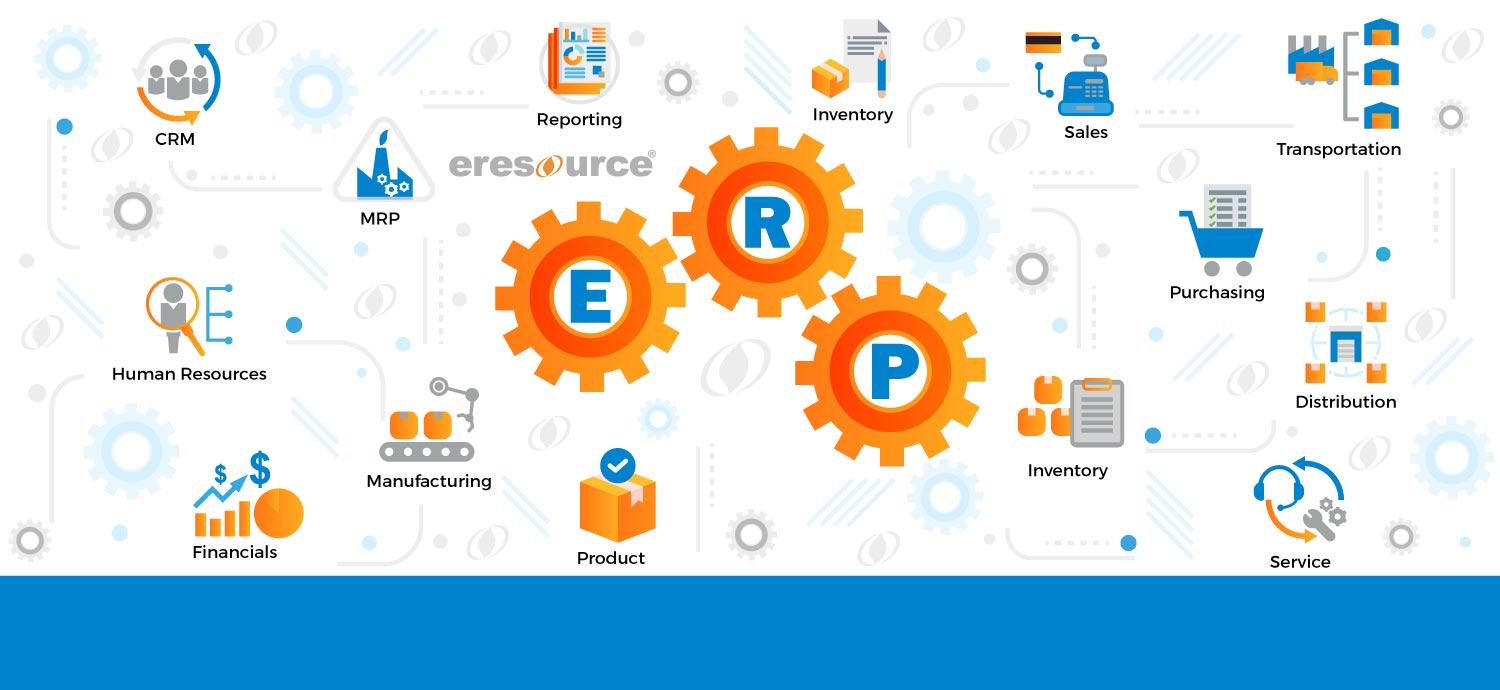Enterprise Resource Planning (ERP) is a business management software system that enables organizations to integrate various business functions and processes, including finance, human resources, procurement, and customer relationship management, into a single, centralized system. ERP systems are designed to provide a holistic view of an organization’s operations, enabling better decision-making and streamlining business processes.
ERP systems have become a popular solution for businesses of all sizes, from small and medium-sized enterprises (SMEs) to large multinational corporations. There are several reasons for this popularity, including the following:
Also Read – Best ERP Software for Manufacturing in India
Comprehensive functionality: ERP systems typically provide a wide range of functionality that covers all aspects of business operations. This includes modules for financial management, supply chain management, human resources management, sales and marketing, customer relationship management, and more. By having all these functions in one system, businesses can reduce the need for multiple software applications and manual processes, thereby improving efficiency and accuracy.
Integration capabilities: ERP systems are designed to integrate with other systems and applications, such as customer relationship management (CRM) systems, supply chain management (SCM) systems, and e-commerce platforms. This integration enables seamless communication and data sharing across different departments, helping organizations to optimize their operations and improve customer experiences.
Real-time reporting and analytics: ERP systems offer real-time reporting and analytics capabilities, enabling businesses to monitor their operations and make data-driven decisions. This functionality can help businesses to identify inefficiencies, bottlenecks, and opportunities for improvement, and to respond quickly to changing market conditions.
Scalability: ERP systems are designed to be scalable, meaning they can be customized and expanded to meet the changing needs of a business. This scalability makes ERP systems a good fit for businesses that are growing or undergoing significant changes, as they can adapt the system to their evolving needs without having to switch to a new platform.
Improved data security: ERP systems are designed to provide robust data security measures, including access controls, user permissions, and encryption. This helps to protect sensitive business data and reduce the risk of data breaches and cyberattacks.
Despite the benefits of ERP systems, implementing them can be a complex and challenging process. Organizations need to carefully plan and manage the implementation to ensure it aligns with their business objectives and meets the needs of their users. Some of the key challenges involved in ERP implementation include the following:
Cost: ERP systems can be expensive to implement, especially for small and medium-sized enterprises. The cost of implementation can include licensing fees, hardware and software costs, consulting fees, and employee training costs.
Complexity: ERP systems are complex and require a high degree of customization to meet the specific needs of an organization. This customization can be time-consuming and costly, and can also lead to compatibility issues with other systems and applications.
Change management: Implementing an ERP system involves significant changes to business processes, which can be challenging for employees to adapt to. Organizations need to carefully manage change and provide training and support to employees to ensure a smooth transition.
Integration: Integrating an ERP system with other systems and applications can be challenging, especially if these systems are outdated or have incompatible data formats. This can require significant technical expertise and resources to overcome.
Data quality: ERP systems rely on accurate and reliable data to function effectively. Organizations need to ensure that their data is clean, consistent, and up-to-date before implementing an ERP system, or risk compromising the integrity of the system.
In conclusion, ERP systems offer many benefits to organizations looking to streamline their operations and improve efficiency. They provide a comprehensive view of business operations, integrate with other systems and applications, offer real-time reporting and analytics, are scalable, and provide robust data security measures. However, implementing an ERP system can be complex and challenging, and requires careful planning and management.
Also Read – ERP for Process Industry
Categories
Register for Free Demo!
Recent Post
-

eresource ERP 360 - an
11th Apr 2019 -

A competitive ERP system for
17th Apr 2019 -

Auto components manufacturing industry has
17th Apr 2019 -

Make the best use of
17th Apr 2019






